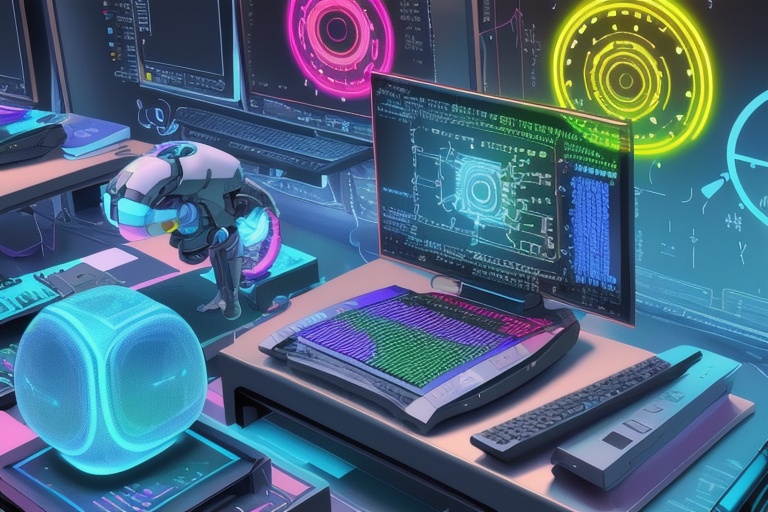Artificial intelligence, commonly known as AI, has now become a household term, yet its inception dates back to the mid-20th century with its official term being coined in 1956. From its early stages of symbolic methods and problem-solving focus, AI has grown in leaps and bounds, evolving into technologies that allow machines to learn from their experiences, adapt to new inputs, and carry out tasks that were once uniquely human.
Artificial intelligence, commonly known as AI, has now become a household term, yet its inception dates back to the mid-20th century with its official term being coined in 1956. From its early stages of symbolic methods and problem-solving focus, AI has grown in leaps and bounds, evolving into technologies that allow machines to learn from their experiences, adapt to new inputs, and carry out tasks that were once uniquely human.
The Evolution of AI
The progression of AI can be tied to various historical milestones. In the 1960s, the US Department of Defense took an active role in training computers to imitate basic human reasoning. This era introduced us to decision support systems and smart search systems that worked in tandem with human capabilities to augment and complement them. Despite these advances, AI's capabilities were significantly ramped up with the introduction of deep learning and natural language processing. These technologies empowered computers to analyze large datasets, identify intricate patterns, and carry out specific tasks, effectively bringing a revolution within the AI field and birthing advancements in computer vision, speech recognition, and language understanding.
AI in Today's World
In today's landscape, AI permeates across various industries, shaping and transforming our daily lives in profound ways. Healthcare has notably seen AI applications in diagnosing diseases, scrutinizing medical images, and crafting bespoke treatment strategies. Retailers harness AI to craft engaging customer experiences, optimize stock management, and automate mundane tasks. Beyond healthcare and retail, AI finds its footprint in finance, manufacturing, transportation, and beyond, indicating a wide-reaching impact.
Emerging Trends in AI
Looking ahead, the integration of AI is poised to deepen, marking several trends worth watching:
Enhanced Personalization: Businesses are projected to leverage AI to offer highly personalized experiences, analyzing customers' preferences and patterns to deliver recommendations and marketing strategies that resonate on an individual level.
Autonomous Vehicles: While self-driving cars have started to make their appearance, it's AI that will be pivotal in enhancing their safety and efficiency. AI-driven algorithms will have the capacity to process live data to make instantaneous decisions during travel.
Healthcare Revolution: AI's journey in healthcare will continue, marked by strides in diagnostic precision, predictive analysis of disease patterns, and the discovery of novel medical treatments. Robotics, powered by AI, may take a prominent role in surgeries for greater accuracy and minimized human error.
Smart Cities: AI is set to be a cornerstone in designing cities that are not only smart but sustainable, efficient, and designed with livability in mind. AI will help manage urban challenges ranging from energy use to traffic congestion, embodying an eco-friendly vision of the future.
Ethical AI: With AI's growing influence, ethical considerations are becoming increasingly important. Algorithms must be fair, accountable, and transparent to avoid biases and discriminatory practices.
The Responsible Use of AI
While AI's potential is immense, it's fundamental to recognize AI as a tool that needs to be employed with ethical consideration and responsibility. It's the collective responsibility to direct AI's development towards outcomes that benefit society.
In the forthcoming sections of this series, we'll delve deeper into AI's applications across various sectors, unpacking both the challenges and opportunities that await. We invite our readers to stay engaged for more insights into the transformative world of AI and the impact it holds for programming, machine learning, and our collective future.
AI's journey from being a speculative concept to a transformative force in multiple domains is intriguing and ongoing. The adoption of AI is not merely about the technology itself but about amplifying human capabilities and enhancing decision-making processes. As we continue to witness the rapid evolution of AI, from algorithms to application-specific integrations, it is paramount to walk the tightrope of innovation with a deep sense of ethics and understanding the domain in question. Looking forward, we embrace a future where AI not only integrates seamlessly into our daily lives but does so with the foresight of augmenting human efforts and progressing societal welfare.
Information for this article was gathered from the following source.




